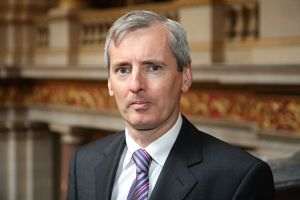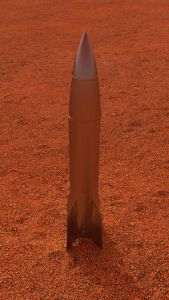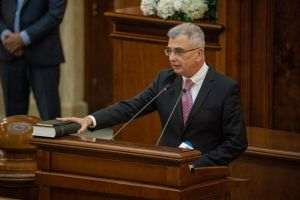The reception of president Klaus Iohannis in the White House in a working visit has been analyzed as a state one, following the good agreement that the two leaders had. Even though characteristic aspects of such a meeting were not present in the protocol of the visit, it is certain that the manner in which the Romanian president has been treated, way above the analysts' expectations, indicates more goodwill from the US. For the chaotic and not at all diplomatic personality of the American president, the outcome couldn't have been any better, in fact it is actually surprising.
The images of the European leaders, trying to look unaffected, huddled around Angela Merkel, while Trump was chastising them about the money they owed NATO, are telling. Just as telling is the scene where Trump pushes a prime-minister aside, to get within the camera frame. These are the gestures that define him publicly.
His biggest gestures are analyzed and they are granted importance, in the stark contrast of the latest meetings that Trump had. With the obvious and revealing aloofness of Angela Merkel, in the relationship with the US president, Mr. Iohannis seemed the peer of the most powerful man on the planet. To the millions of Romanians who watched the meeting, the representative of our country was almost royally received. Contrasted once again, with the events at the latest G7 summit or that of the NATO leaders, Klaus Iohannis successfully achieved a personal connection worthy of Kissinger or Richelieu. It is from that point of view, of unexpected success, perhaps even a "stolen" victory, that the meeting should be seen, to the extent where Mr. Trump is not a diplomat, but a businessman.
It is paradoxical, given the way that he won the elections in the US, by always courting the TV cameras, stating anything that the conservatives who voted for him wanted to hear, that Mr. Trump can't pretend even a little during the diplomatic meetings. Having already taken his position, the man is not accustomed to receiving advice and not at all accustomed to letting the position take precedence. He seems more like a small time politician than one in Washington, that has very carefully built the public image. But that is the truth.
So the reactions of Mr. Trump are not at all strange, but instead they demonstrate a strict pragmatism. Since his appointment, the US has entered a conservative and isolationist policy, finding it difficult to come up with the budget funding to meet his campaign promises. It is precisely the fact that he has kept those promises is surprising, It is precisely the fact that he kept them that is surprising, when it was obvious that in many cases they were simple statements meant to bring votes and nothing else. Mr. Trump played independently from Washington, but once he got to that position, he realized that the game is not individual, but instead necessitates the involvement of several institutions (Congress, to a great extent), that he had no leverage on.
The image of an uncharismatic leader, but providential to the republicans' interests, arises, who needs the game to be tilted in his favor. The reality is another, which was also visible in the polls concerning his popularity. Just a few months since taking over his mandate, 56% of Americans are somewhat displeased with Trump's performance, whereas just 38% are positive. Obama never went below 44%, during his terms. George W. Bush had a 38% "job approval" only after 20000 days of his term.
And thus we need the president's need for performance, which is most easily proven through this foreign policy actions: economic protectionism against Europe, withdrawal from the international climate warming treaties, a new peace effort in the Middle East, with the Qatar crisis not that important in the great deal between the Arab states and Israel, a weapons contract of 110 billion dollars with Saudi Arabia and mobilization on the issue of North Korea.
Mr. Trump needs the Republicans' protection, essentially saying "you did not want me, but now I want you". And on a beautiful June day, he is even making concessions to the press gathered at Rose Garden, accepting questions, when he had accused it lately of sending fake news. And he is doing that next to the president of a country in Eastern Europe that most of his voters could barely place on a map. That is the American context of the successful meeting between Trump and Iohannis.
In turn, Iohannis was seeking a PR stunt. Partially due to the extremely good work by the Romanian embassy in the US, partially due to his own charisma (which he probably picked up in a corner), this unexpected Kennedy of Romanian politics managed to improve the image of the most powerful man on the planet. The relationship was consensual and business oriented, something Trump was familiar with. And he spoke, in laudatory terms, both about his peer, as well as about Romania (where his son had come for a hunting trip in the county of Alba). Mr. Trump impressed us by the fact that he actually knew had some knowledge about us and he honored us by treating Klaus Iohannis as an equal.
In a good mood, when asked whether the foundation of NATO exists, more specifically article 5 of the defense treaty, which requires member states to help in the event of an armed aggression, Trump allowed the idea. We say allowed because it is unclear whether he had a clear notion of what that article included. His cordiality and the fact that it concerned NATO (hence it was something positive) pushed him to declare that he promises to comply with the most important facet of world peace, since WW 2. In the NATO summit, not much earlier, that subject had been not been discussed. Once again it is unclear whether an additional question asked by the Romanian journalist, along the lines of "but do you know what article 5 is?", would have received an answer. The spokesperson of the White House probably thanked God that didn't happen.
It is also very likely that Mr. Trump, seeing as how he was in the hotel business, sees everything as a simple reception, informal even, in the end. The non-politician had some statements to make on the topic of the Qatar crisis, had a speech prepared for the meeting with Iohannis, but more than that and in the answers he had to give the press, he seems to have been caught on a good day. Trump scored on items that couldn't affect his presidency: yes, the US supports the fight against corruption (obviously!), yes, the US have a good partnership (not strategic!) with Romania ("I liked the man I talked to"). Yes, we support Art. 5 of NATO (no idea what it is, but since you asked, it is important and I need to answer). Yes there is some corruption in Romania, but the Americans will come and you will see things will be better. Talk is cheap, so he could afford to say all these things. But the difference between a foreign leader who knows these topics of maximum importance in Romania and Mr. Trump remains unclear.
It is unlikely, in fact, given the way that the American press was reporting that the US president was asking for synopses of the national security reports, that he knows much about the topics he spoke about openly. And this is where the hypocrisy of the press and of Romanian analysts comes from, who, knowing the situation, rushed to treat a clown like a man of state. Unfortunately, it is perfectly possible that what was said in Rose Garden will have no real weight. That is the risk, even though our hope relies mostly on the good personal relations between Trump and Iohannis. In other words we are talking about a small dubious deal, about having someone on the inside. It's gracefully accepted, with the appropriate thanks to our president of German ethnicity, who is now Romanian and even likely to be elected for a second term!
The ambience and the honor of being received in the White House have overwhelmed the entire Romanian mission, politicians, diplomats and journalists, who were quick to praise the event and to credit the meeting with extremely high potential, forgetting that they were dealing with a native "showman" and not a politician. But it is worth stressing the ability of Mr. Iohannis to adapt to the situation and to get who he was dealing with, and even bring some dignity to the whole situation. But we got overwhelmed by the apparent institutional power, to the extent where not even Mr. Trump is really certain of it. It remains to be seen, from that point of view, who the provincials actually are in this situation.


















































